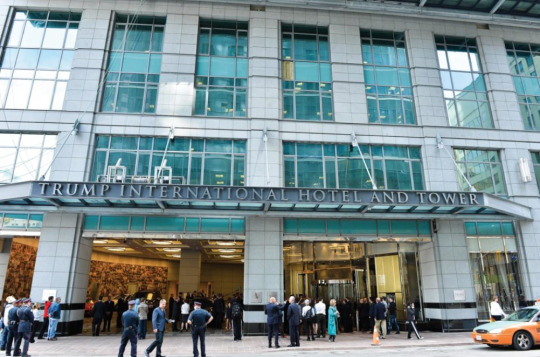Text
ПИРОЖНИКОВ СЕРГЕЙ СЕРГЕЕВИЧ

26 Февраля 1983 (40 лет), г. Ленинград (Санкт-Петербург)
Депутат Законодательного Собрания Республики Карелия
БИОГРАФИЯ
Родился 26 февраля 1983 года в городе Ленинграде. Образование высшее профессиональное. Окончил Институт международного права и экономики имени А.С.Грибоедова по специальности "менеджмент".
В 2002 году из Санкт-Петербурга переехал в Петрозаводск и занялся благотворительной деятельностью. В 2006 году из рук мэра Виктора Маслякова получил звание «Меценат года». На сегодняшний день продолжает оказывать поддержку как бюджетным организациям социальной, образовательной, культурной и спортивной направленности, так и физическим лицам, оказавшимся в трудной жизненной ситуации. С 2009 года по настоящее время является техническим директором ООО "РМ-Инвест".
В марте 2012 года он официально зарегистрировал свою деятельность, открыв Благотворительный фонд (НКО «Благотворительный фонд Сергея Пирожникова»). Советник по вопросам взаимодействия с государственными органами ООО «СДСП-Групп» (город Петрозаводск). 4 декабря 2011 года избран депутатом Законодательного Собрания Республики Карелия Пятого созыва по Единому избирательному округу.
ОБРАЗОВАНИЕ
Образование высшее профессиональное. Окончил Институт международного права и экономики имени А.С.Грибоедова по специальности "менеджмент".
КОМПРОМАТ
Чем меньше сказано, тем больше копают.Сериал «Карточный домик»
СЕМЬЯ
Холост.
АМБИЦИИ
4 декабря 2011 года избран депутатом Законодательного Собрания Республики Карелия Пятого созыва по Единому избирательному округу.
ВЫБОРЫ
Вы выиграли выборы, а я — подсчет голосов.Анастасио Сомоса, президент Никарагуа
СОСТОЯНИЕ
Размеры состояния определяются не величиной доходов, а привычками и образом жизни. Цицерон
УВЛЕЧЕНИЯ
Ничего не принимайте близко к сердцу. Немногое на свете долго бывает важным. Эрих Мария Ремарк
СОРАТНИКИ
ХУДИЛАЙНЕН
АЛЕКСАНДР ПЕТРОВИЧЭкс-Глава Республики Карелия
0 notes
Text
バイエル(モンサント)が10万件の訴訟に1兆円で和解 ラウンドアップに発がん性
2020年6月25日

除草剤グリホサートの散布(フランス北西部)
ドイツのバイエル社は24日、除草剤ラウンドアップ(主成分グリホサート)の発がん性をめぐって起こされた訴訟で和解し、最大109億㌦(約1兆1600億円)を支払うと発表した。ラウンドアップはアメリカに本拠を置く多国籍企業のモンサント社が開発したものだが、バイエル社が2018年に630億㌦で買収した。ところがバイエル社はアメリカで10万件以上におよぶ訴訟を起こされ、株価は下落し経営難に陥っていた。ラウンドアップの危険性は国際機関も警鐘を鳴らしており、アメリカをはじめ世界各国で訴訟が起こり、販売を禁止する国もあいついでいる。ところが、日本政府は世界の流れに逆行しラウンドアップの安全性を認めるどころか規制を大幅に緩和し販売を促進している。
バイエル社は、100億㌦以上の和解金を支払うことで同社のラウンドアップ製品に関連して現在直面している約12万5000件の裁判申し立てのほとんどが解決されるとしている。また、この和解ではPCBという有毒な化学物質で汚染された水だけでなく、除草剤ジカンバに関する他の多くの訴訟も解決するとしている。10万件以上の訴訟の原告はラウンドアップの主成分であるグリホサートががんを発症させたと主張している。グリホサートの発がん性は2015年にWHO(世界保健機関)の関連団体が指摘した。だがその後2017年にはアメリカ国立衛生研究所(NIH)がこれを否定し、モンサントもグリホサートは安全だと主張していた。
バイエルがモンサントを買収した2018年にカリフォルニア州の裁判所が学校の校庭管理人ががんを発症したのはラウンドアップが原因とし、バイエルに2億8900万㌦の損害賠償支払いを命じた。その後も別の裁判所が2018年と2019年に同様の決定をおこない、8000万㌦と20億㌦の賠償金支払いを命じていた。その後賠償金の額は引き下げられたが、バイエルの株価は大きなダメージを受けた。また、カリフォルニア州の裁判所はバイエルに対してラウンドアップに発がん性があるとの表示をおこなうよう命じた(ちなみに6月22日に米連邦裁判所がこの命令を無効とした)。
2019年8月にバイエルは80億㌦の賠償金を支払う提案をおこない、和解への動きを示した。和解では、バイエルが現在のラウンドアップ訴訟を解決するために、88億㌦から96億㌦支払うことを宣言し、今後の訴えにそなえ追加で12億5000万㌦を用意したとのべた。和解により約9万5000件の訴訟が終結するとしている。だが、今後も約2万5000件の訴訟が未決着のまま残る。
また今回の和解はジカンバに対して提起された多くの訴訟をも解決することになる。バイエルは、ジカンバの被害に関する主張に関連して、「ミズーリ東部地区の米国地方裁判所で係争中の多地区訴訟と2015年から2020年の作物年の請求を解決するために、合計で最大4億㌦を支払う」とのべている。なお、そのなかには陪審がバイエルとその共同被告であるBASFにミズーリの桃農家に2億5000万㌦以上を支払うよう命じた今年初めの決定は含まれていない。
またこの和解には、モンサントが公共用水をPCB(ポリ塩化ビフェニル)で汚染したという主張に対する約8億2000万㌦の支払いも含まれている。
州への影響として、ペンシルベニア州当局は「1979年に、EPA(合衆国環境保護庁)はPCBの使用を禁止したが、それらは1979年より前に生産された一部の製品にまだ存在している。それらは堆積物や土壌に結合するため、環境に存続する。PCBへの高曝露は先天性欠損症、発達遅延、および肝臓障害を引き起こす可能性がある」と報告している。
モンサントは1977年に生産を停止する前にPCBを合法的に製造していた。同社は地元の訴訟を解決するために6億5000万㌦、ニューメキシコ、ワシントン、およびコロンビア特別区の検事総長に1億7000万㌦を支払う。
世界の流れに逆行する日本
モンサント社は遺伝子組み換え種子の世界シェア90%を誇る多国籍バイオ化学メーカーで、世界の食料市場をほぼ独占している。同社の売上をけん引する一つが除草剤ラウンドアップだ。同社が遺伝子組み換え作物を開発したのは、ラウンドアップに耐性のある作物をつくり、セットで販売するためだった。たとえば遺伝子組み換えのトウモロコシ畑に除草剤ラウンドアップを散布しても、雑草は枯れるがトウモロコシは枯れないように遺伝子組み換えをおこなっている。モンサントは1970年にラウンドアップを開発し、遺伝子組み換え種子とセット販売を世界規模で拡大し、 世界市場を独占してきた。
遺伝子組み換え作物の危険性とともに、除草剤ラウンドアップの危険性が問題にされた歴史は古い。1996年にはモンサントが「食卓塩より安全」「飲んでも大丈夫」と宣伝していたことに対し、ニューヨークの弁護士が訴訟を起こした。2001年にはフランスでも消費者の権利を守る運動をしている活動家が訴訟を起こした。
その後世界各国で問題になり、販売中止や使用禁止措置を次ぎ次ぎにとっている。フランスやオランダがすでに禁止しており、ドイツ、イタリアなど世界33カ国が今後2~3年のうちに禁止することを表明している。
そうした世界的な流れに逆行しているのが日本政府だ。内閣府食品安全委員会は2016年に「グリホサートの安全性を確認した」との評価書を公表し、これを前提にして厚労省は2017年12月にはグリホサートの残留農薬基準を大幅に緩和した。小麦で6倍、ソバで150倍、ゴマで200倍、ベニバナの種子で400倍というけた違いの大幅緩和だ。
日本ではラウンドアップはホームセンターやドラッグストアなどどこでも販売されている。店頭では「もっとも安全な除草剤」とか「驚異の除草力」といった宣伝文句で販売され、農協の販売ルートにも乗っている。
毎年5月には世界の数百の都市で「反バイエル・モンサントデー」と称して一斉に抗議行動がおこなわれている。行動の主眼はラウンドアップを含む除草剤への抗議だ。アメリカではすべての州でラウンドアップの全面禁止を求める運動が起こり、ニューヨーク州ではラウンドアップを「安全な農薬」と宣伝することが禁止された。バイエル社が1兆円を払って和解に応じたのも、ラウンドアップの発がん性を認めざるをえなかったからにほかならない。
国民の生命や健康を危険にさらす日本政府の姿勢こそ異常であり、ラウンドアップの販売や使用を中止する必要がある。
0 notes
Text
Trumped: the multi-million-dollar lawsuit over Toronto’s most controversial new condo-hotel
The Trump tower, downtown’s tallest new condo-hotel, is a monument to excess. And, like its tycoon namesake, it’s surrounded by controversy: 38 investors are suing the hotel for millions. Lessons from a post-crash real estate market

In the city’s new five-star hotel landscape, the Ritz represents elegant European classicism, the Shangri-La cool, Asian chic, and the Trump unfettered American pomp. Like its loud-mouthed namesake, the Trump is brash, proud and full of bluster. Stock, the hotel’s restaurant and bar, is outfitted with shiny tufted black leather seating and silver accents. Its lobby, a shimmering expanse of marble and mirrors, seems sprung, fully formed, from the imagination of Joan Collins.
The hotel’s developer, Talon International, is run by Val Levitan and Alex Shnaider, two Russian-Canadian entrepreneurs. Levitan made his fortune manufacturing slot machines and creating bank note validation technology, and Shnaider earned his in the post-glasnost steel trade. The Trump is their first Toronto real estate venture. In 2002, during a meeting in Shnaider’s office at Dufferin and Finch, they agreed on a plan to build the city’s biggest, fanciest, five-starriest hotel. They both travel frequently for work and agreed that Toronto’s hotels lacked the quality of the ones they stayed at in London, New York and Moscow. Back then, Toronto’s swankiest option was the old Four Seasons, a dour brutalist tower in Yorkville. But the city was emerging as a major North American financial centre, a place where serious players were coming to do big international deals. These titans were in need of boardrooms in which to meet, bloody steaks to consume, and high-thread-count sheets to sleep between.
In 2004, Talon bought a site at the corner of Bay and Adelaide for $27.4 million. The location was perfect—smack in the centre of the business district. This was before the cultural revitalization of the city’s downtown core, but Levitan and Shnaider could see the signs: the revamping of the Bay’s flagship department store, the plans for the new Bell Lightbox, not to mention a phalanx of condos and restaurants springing up in the city centre. By the time the hotel was completed, it would be the anchor point of a tourist-friendly downtown.
The luxury hotel required a famous brand, which is how the pair ended up approaching Donald Trump. At the time, Trump’s reality show The Apprentice was riding high in the ratings, and the Trump brand was associated with luxury, success and business prowess, not with headline-making Twitter spats and an aborted Republican leadership bid. They worked out a deal to license the Trump name.
They planned a 65-storey mixed-use building consisting of a restaurant and bar, a day spa, 118 condos—some as large as 4,400 square feet and selling for up to $9.1 million—and 261 “condo-hotel suites,” traditional hotel rooms that Talon intended to sell as residential real estate investments. The condo-hotel set-up was unusual in Toronto. It’s an attractive model for developers because it allows them to raise capital up front from investors.
Donald Trump is a shareholder in other Trump developments in Chicago, New York and Las Vegas, but not in Toronto. The hotel would bear his name and his style, and an affiliate of his management company would run the day-to-day hotel service. According to the early marketing brochures, it would be a model for “Manhattan-style luxury living in Toronto.”

By the time the Trump opened in 2012, ten years after the plan was hatched and more than two years later than originally scheduled, the financial climate had, of course, drastically changed. The hotel now felt like a throwback to a cockier, pre-recession era, back when hedge fund managers ruled the world and Bernie Madoff was a respected financial guru. A group of buyers now regret their investment in the building, and millions of dollars in deals between them and Talon are on the verge of collapsing. The group claims their condo-hotel units often sit empty, and they’ve launched a series of lawsuits alleging the Trump sales team misrepresented how much profit they’d make. The defendants say the lawsuits have no merit, that no misrepresentations were made. The claims have yet to be heard in court.
The Trump investors believed they’d bought into a get-rich-quick scheme. How did something so promising go so wrong?
Before there was the Trump Tower, there was the Trump tower sales office, a glass-fronted box that stood on the same prime corner from which the hotel would eventually rise. A polished young sales team sold a steady stream of units, over the phone, online and in person, to a diverse cross-section of buyers—including elderly Korean pensioners, wealthy Nigerians and a now-defunct U.K. company called WorldWide Properties, which bought four floors of hotel units with the intention of flipping them.
When the Trump broke ground, half of the residential condos had sold, as had 191 of the condo-hotel units, which ranged in price from $736,000 to $3.8 million. The suites could be rented out as part of the hotel, providing extra income to buyers. In the Trump system, occupancies are organized in a strict, computerized rotation, which ensures that the least rented room jumps to the front of the queue. The hotel charges service fees for maintenance (linens, towels, cleaning, etc.) and management, but the rest of the rental profit goes to the owner of the room. The promotional material declared that “investing in hotel suites is a trend that’s sweeping the United States… The reason? Great cash flows, no concern for maintenance and reasonable cash requirements as a down payment. Leverage is key, especially in these times of low interest rates.”
0 notes